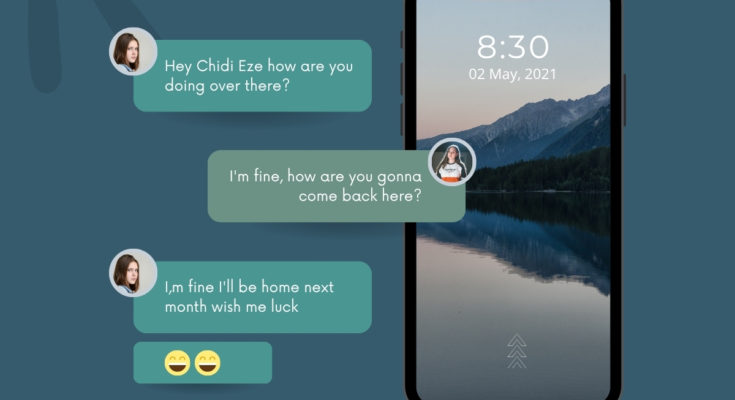And why Gen Z is suddenly obsessed with doing it right
Why would anyone want to send a text anonymously?
Let’s be honest, some messages hit differently when the sender’s name isn’t attached.
That one compliment you’ve been dying to give.
The truth you couldn’t say in person.
The prank that’s funny only if it stays untraceable.
But anonymity in 2025 isn’t just for memes and mischief anymore.
It’s become a digital language, a way to express, confess, joke, flirt, or even warn… without the pressure of identity.
And Gen Z?
They’ve turned anonymous texting into an entire vibe.
But here’s the catch:
You want to do it without breaking laws, violating terms of service, or ending up blocked by your network provider.
So the real question is…
Can you send a text message anonymously – legally?
Yes, you can.
But not all anonymous texting methods are created equal.
Some are legal but traceable.
Some are private but not entirely anonymous.
And others… exist in that sketchy grey zone you don’t want to mess with.
Let’s break it down.
Option 1: Use an anonymous texting website (no registration)
There are legit websites that let you send one-time anonymous SMS messages without needing an account.
Think of it as the digital equivalent of whispering through a paper cup simple, fast, and gone before anyone can trace it.
How it works:
- Go to a site like TxtEmNow or SendAnonymousSMS (be mindful check reviews)
- Type the recipient’s number
- Write your message
- Hit send
That’s it.
No app. No signup. No need to share your identity.
Pros:
- Instant and easy
- No personal info needed
- Great for one-off messages
Cons:
- Limited features (no replies)
- Some countries block or flag them
- Can get throttled by mobile carriers
Best for:
Quick confessions, anonymous tips, or one-liner compliments.
Option 2: Use a burner number app
This is where things get a bit more robust.
Apps like TextNow, Hushed, or Burner give you a temporary number that’s different from your real phone number.
It works like a real SMS two-way messaging, notifications, even call functionality in some cases.
How it works:
- Download the app
- Pick a burner number (can be local or international)
- Start texting anonymously
You can even delete the number after use or keep it if you’re running a secret project.
Pros:
- Fully functional texting and calling
- Option to receive replies
- Feels just like regular messaging
Cons:
- Requires app download
- May ask for email or backup number
- Free versions may have ads or limits
Legal tip:
These apps follow privacy laws, but don’t use them for harassment or impersonation; your IP can still be traced in criminal cases.
Option 3: Use a messaging platform with anonymous features
Sometimes the best way to stay anonymous… is to leave SMS behind altogether.
Platforms like SecretNote.me let you send messages that are anonymous by design, no number, no account, no trace.
You drop a message.
They get a link.
They open it once.
Poof it’s gone.
It’s not SMS, but it taps into the same intent: saying what you really mean without anyone knowing it was you.
Why it’s different:
- No app needed
- No phone number required
- Messages auto-delete after being seen
- End-to-end encryption included
Best for:
Anonymous confessions, emotional releases, cryptic compliments, digital treasure hunts.
And if you want to go deep, you can even write a long anonymous note like a letter without a name.
What about using email or Google Voice?
You can send anonymous texts via email if you know the recipient’s carrier SMS gateway (like [email protected] for Verizon).
But it’s clunky.
Google Voice lets you text from a different number, but it’s tied to your Google account so not anonymous unless you’re using an alternate identity (which can get tricky).
In short:
Email and Google Voice are functional but not frictionless. They’re fine for testing, not for thrill or stealth.
What’s definitely not legal or ethical?
Let’s make this clear.
These are red flags:
- Spoofing a known number
- Sending threats or harmful content
- Using anonymity to impersonate someone
- Evading law enforcement or harassing someone
Just because you can be anonymous doesn’t mean you should be reckless.
Anonymity is freedom. Not a free pass.
So what’s the smartest way to text anonymously in 2025?
It depends on what you’re trying to do.
Here’s a quick decision framework:
| Scenario | Best Method |
| Send one-time message | Anonymous texting website |
| Have a full convo | Burner number app |
| Drop a cryptic, link-only note | SecretNote.me |
| Send tips or truths safely | Anonymous note platform with encryption |
Anonymity isn’t just about hiding.
It’s about revealing without pressure.
And Gen Z gets that better than any generation before.
But why is anonymous texting becoming so popular again?
Two reasons.
1. We’re drowning in identity.
Every app knows who we are, what we click, and what we look like by 8K camera zoom.
Sometimes, we just want a break from being seen.
2. We want to say more but not own everything we say.
An anonymous message creates space to explore truth without judgment.
It’s a sandbox for honesty.
A playground for chaos.
A stage for the soft parts of us that don’t always make it to the feed.
The rise of anonymous messages in the Gen Z era
Just scroll through TikTok or Instagram right now.
You’ll find trends like:
- “Send me an anonymous compliment”
- “Confess something without telling me who you are”
- “Tell me what you’ve never said out loud”
It’s not just play, it’s permission.
Anonymous messages give people a way to connect in a world that’s hyperconnected but emotionally guarded.
We’re not afraid to talk.
We’re afraid to be judged.
Anonymity removes the fear so truth can step in.
And here’s where SecretNote.me fits in perfectly
Think of it as the anonymous note your inner teenager always dreamed of but redesigned for now.
- Anonymous by default
- Auto-deletes after reading
- No login, no tracking, no pressure
- Encrypted for safety, built for self-expression
Whether it’s a soft confession or a savage truth bomb, SecretNote makes it possible to say what you mean without messing with your legal standing or phone bill.
And because there’s no app to install, it’s pure vibes.
Drop the link. Let the mystery unfold.
In the end, the message matters more than the sender
When you take identity out of the equation, something interesting happens:
The words matter more.
The truth gets clearer.
And sometimes, the reaction is deeper than if they knew it was you.
Because sometimes…
A message with no name hits the heart the hardest.
Final thoughts
Texting anonymously doesn’t have to be sketchy, shady, or spammy.
It can be intentional, expressive, and surprisingly human.
Whether you’re sending a compliment, clearing the air, or just playing along with a trend, anonymous messages are the new way to show up without showing off.
And when done right?
It’s not just legal.
It’s liberating.
P.S. Want to try it without apps, signups, or weird links?
Head to SecretNote.me.
Drop a thought. Copy the link. Disappear.
Let your words speak for themselves.



